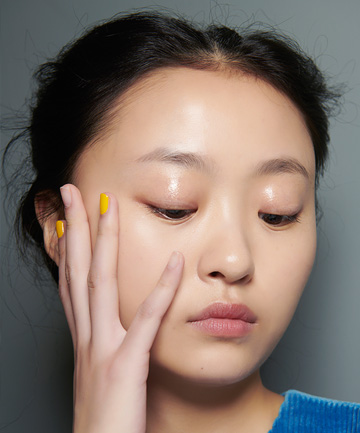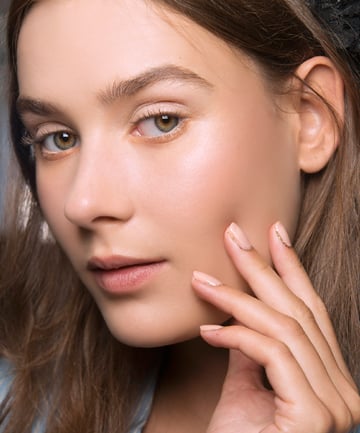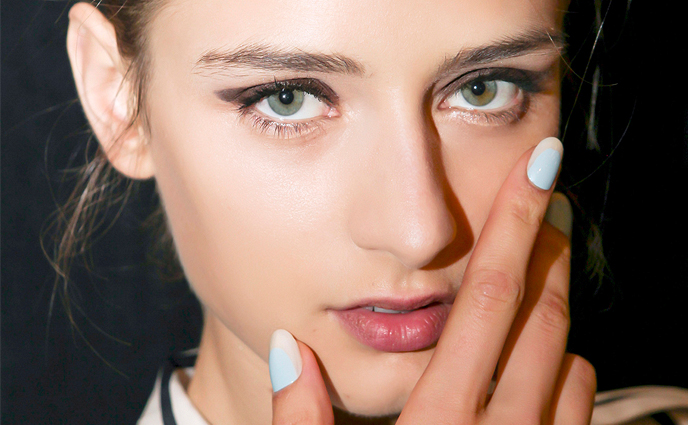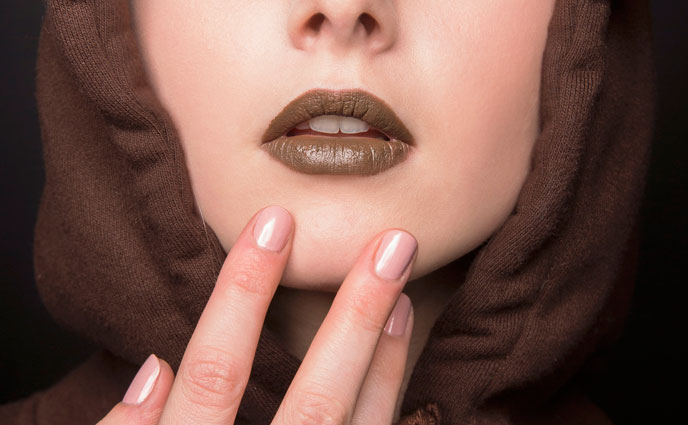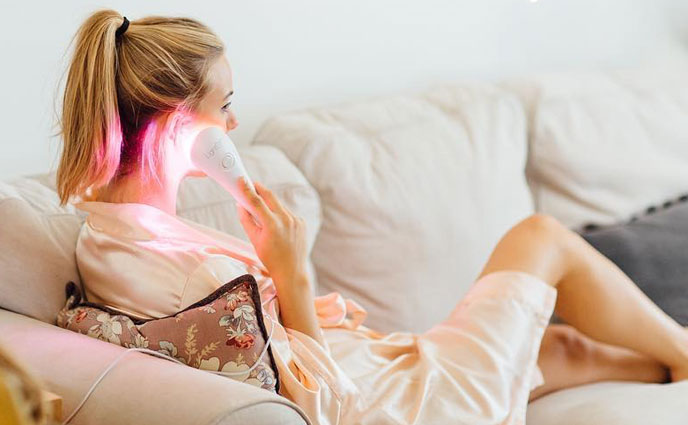"If patients have excessively oily skin, or are prone to excessive sweating, fungal acne can occur," explains Dr. Mamelak. "It can also pop up in patients wearing a tight hat (or helmet) or use thick emollients or creams. Similarly, if patients have been on systemic steroids, or have suppressed immune systems, fungal acne can also develop."
Your hair care products can be another surprising cause behind fungal acne: Dr. Shainhouse explains that oil-based scalp and hair care products can sometimes lead to clogged pores, which in turn leads to fungal acne. She adds that dandruff is usually triggered by the same type of yeast that triggers fungal acne — so watch out for dandruff!
Image via Chobsak Dararuang/EyeEm/Getty
Since fungal acne is an infection of the hair follicles, Dr. Mamelak explains that it can't be treated with the usual acne medications. Instead, you'll want to use oral antifungal agents and shampoos. "Prescription oral antifungal pills and antifungal shampoos can be used, and in resistant cases, Accutane can also be used to effectively clear the skin as well," he says.
Another tip: Dr. Mamelak says that fungal acne can be recurring, so you'll want to be diligent with your treatment plan, and use your antifungal shampoos as directed.
Image via Imaxtree
Dr. Minars says it's important to book an appointment with a board-certified dermatologist in order to treat and diagnose this condition effectively.
"It is important to diagnose pityrosporum folliculitis, because it is treated differently than acne," he explains. "We specifically use anti-yeast medications (like Ketoconazole cream) and oral fluconazole to treat pityrosporum folliculitis, as opposed to antibiotics and Retin-A, which we use to treat acne. So, instead of battling acne for many months and likely having flare-ups over the course of years, you can achieve clearer skin more quickly, once it's accurately diagnosed and treated."
Image via Imaxtree



